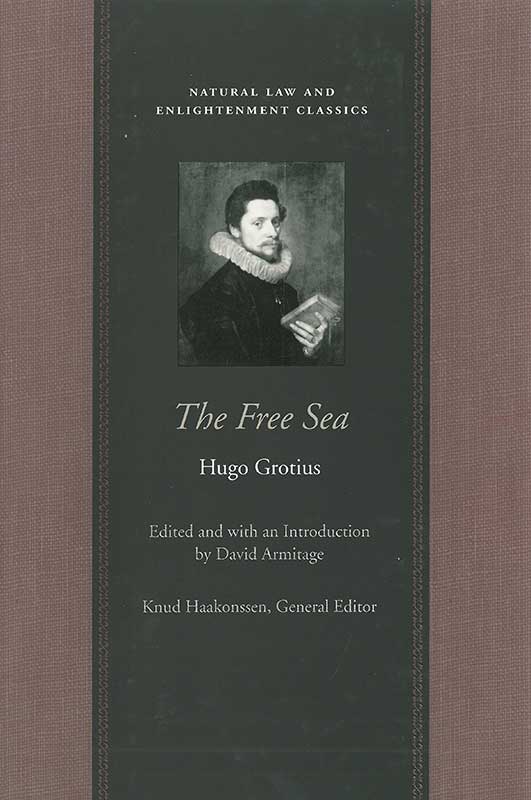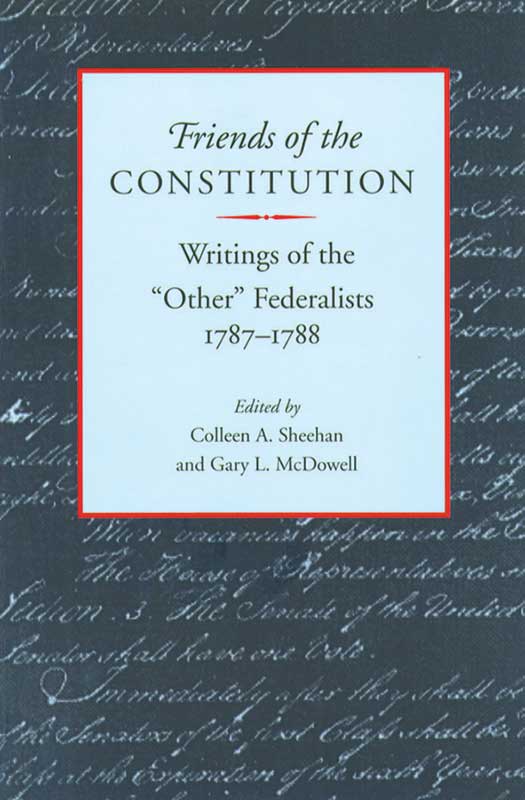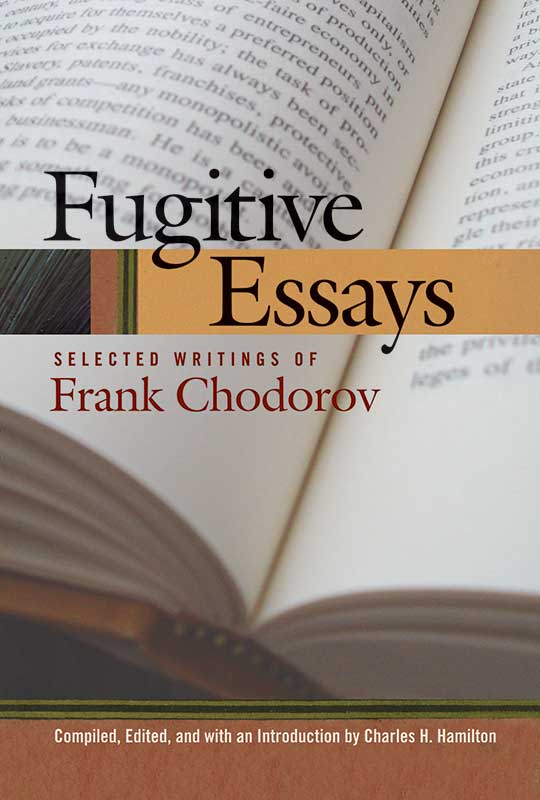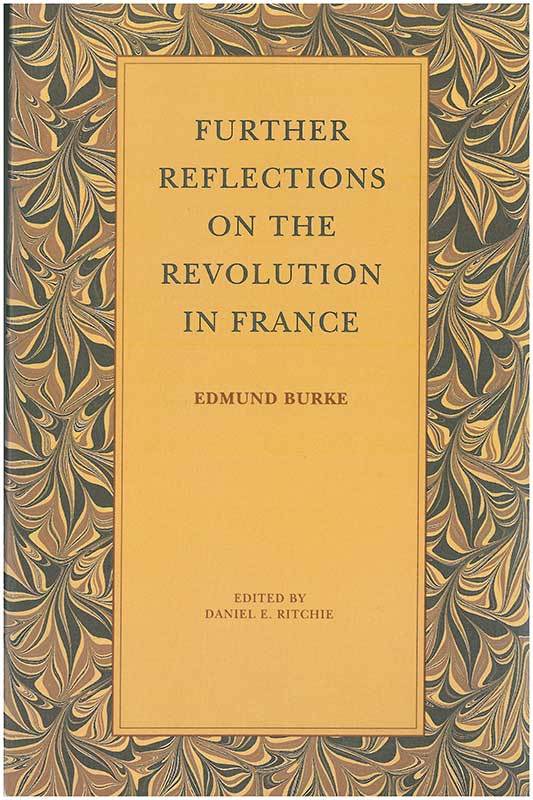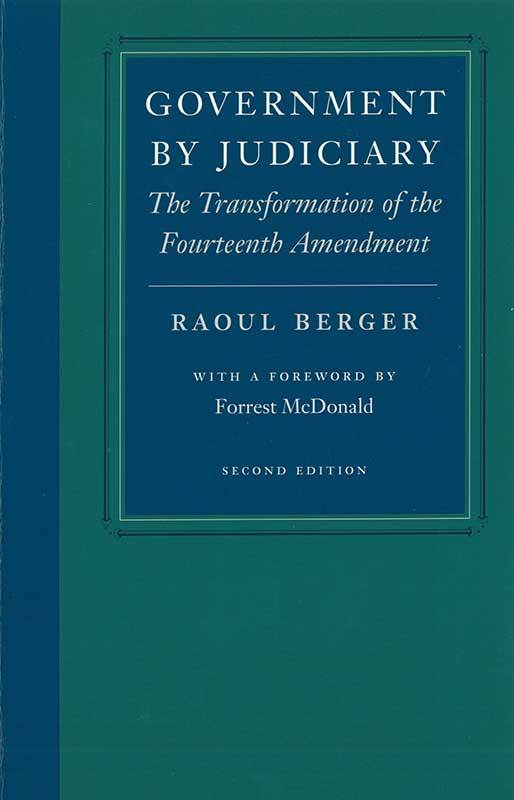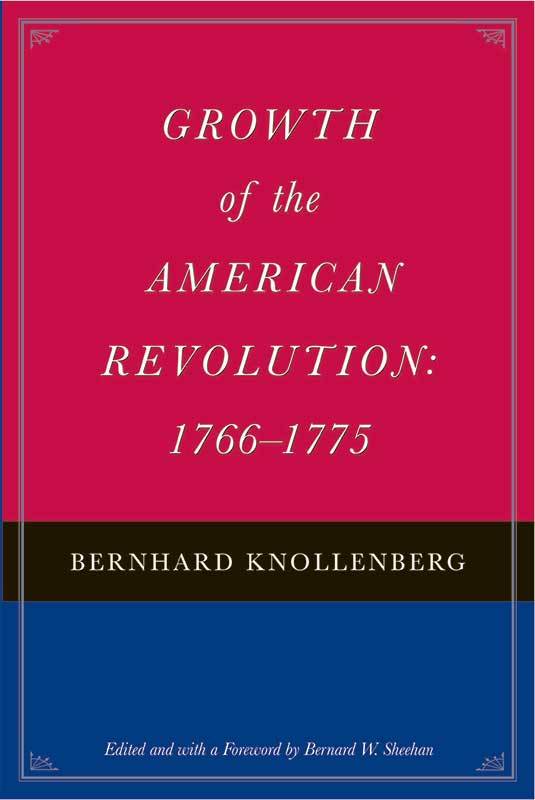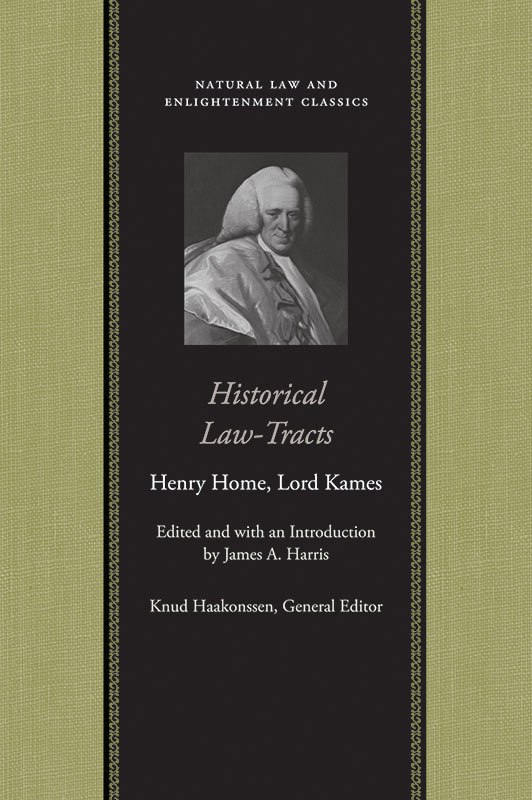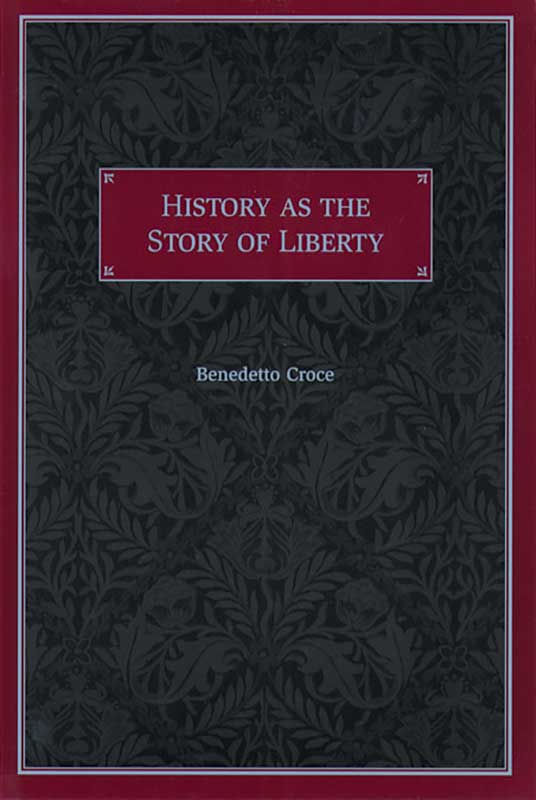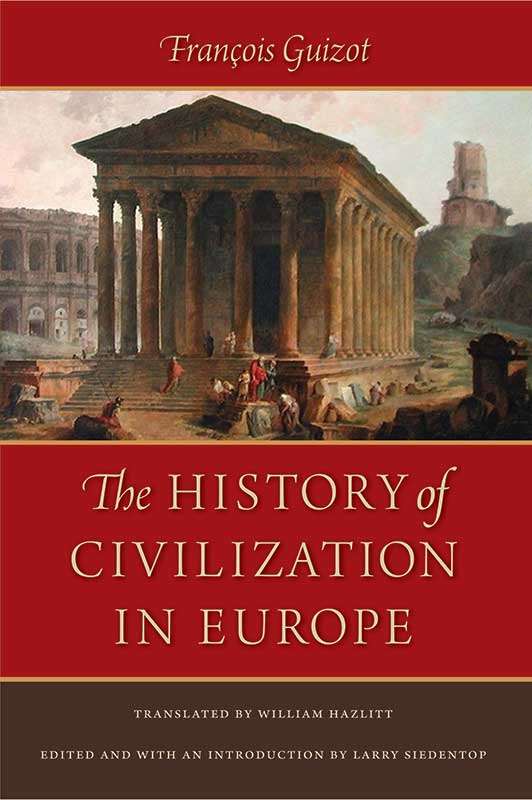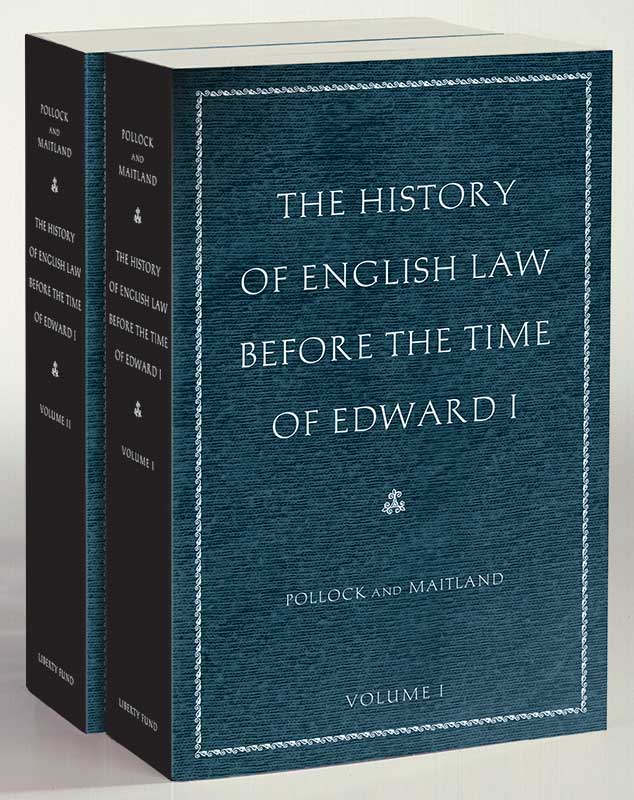For Educators
-
The Free Sea
by Hugo Grotius
/ Learn MoreLiberty Fund’s edition of The Free Sea is the only translation of Grotius’s masterpiece undertaken in his own lifetime, left in manuscript by the English historian, Richard Hakluyt (1552–1616). It also contains William Welwod’s critique of Grotius (reprinted for the first time since the seventeenth century) and Grotius’s reply to Welwod. These documents provide an indispensable introduction to modern ideas…
-
Friends of the Constitution
by Colleen A. Sheehan and Gary L. McDowell
/ Learn MoreThere were many writers other than John Jay, James Madison, and Alexander Hamilton who, in 1787 and 1788, argued for the Constitution’s ratification. In a collection central to our understanding of the American founding, Friends of the Constitution brings together forty-nine of the most important of these “other” Federalists’ writings. Colleen A. Sheehan is Professor of Political Science at Villanova…
-
Fugitive Essays
by Frank Chodorov
/ Learn MoreFrank Chodorov profoundly influenced the intellectual development of the post-World War II libertarian/conservative movement. These essays have been assembled for the first time from Chodorov’s writings in magazines, newspapers, books, and pamphlets. They sparkle with his individualistic perspective on politics, human rights, socialism, capitalism, education, and foreign affairs.
-
Further Reflections on the Revolution in France
by Edmund Burke
/ Learn MoreIn his famous Reflections on the Revolution in France (1790), Edmund Burke excoriated French revolutionary leaders for recklessly destroying France’s venerable institutions and way of life. But his war against the French intelligentsia did not end there, and Burke continued to take pen in hand against the Jacobins until his death in 1797. This collection brings together for the first…
-
George Washington
by George Washington
/ Learn MoreGeorge Washington speaks for himself on behalf of liberty and the emerging American republic in this handsome book, the only one-volume compilation in print of his vast writings. While Washington is recognized as a military leader and the great symbolic figure of the early republic, many fail to appreciate the full measure of his contributions to the country. In these…
-
Government by Judiciary
by Raoul Berger
/ Learn MoreIt is Berger’s theory that the United States Supreme Court has embarked on “a continuing revision of the Constitution, under the guise of interpretation,” thereby subverting America’s democratic institutions and wreaking havoc upon Americans’ social and political lives. Raoul Berger (1901–2000) was Charles Warren Senior Fellow in American Legal History, Harvard University.
-
Growth of the American Revolution: 1766-1775
by Bernhard Knollenberg
/ Learn MoreIn the fall of 2002, Liberty Fund published noted historian Bernhard Knollenberg’s Origin of the American Revolution. Now Liberty Fund proudly announces the publication of the second volume of Knollenberg’s masterwork on the American Revolution. Knollenberg describes Growth of the American Revolution as “. . . an Account of the Change in the Minds and Hearts of a Majority of…
-
Historical Law-Tracts
by Henry Home, Lord Kames
/ Learn MoreHistorical Law-Tracts is one of the earliest contributions to the Scottish Enlightenment project of a historical science of society. Henry Home, Lord Kames (1696–1782), was an influential Scottish judge, a prolific man of letters, and one of the leading figures of the Enlightenment in Scotland, and his goal in this work is to show the study of law as a…
-
History as the Story of Liberty
by Benedetto Croce
/ Learn MoreBenedetto Croce (1866–1952), who is perhaps best known as the author in 1902 of Aesthetics, wrote History as the Story of Liberty in 1938, when the Western world had succumbed to the notion that history is a creature of blind force. A reviewer at the time noted the importance of Croce’s belief that “the central trend in the evolution of…
-
The History of Civilization in Europe
by François Guizot
/ Learn MoreOriginally given as a series of lectures at the Sorbonne, François Guizot’s History of Civilization in Europe was published to great acclaim in 1828 and is now regarded as a classic in modern historical research. History was particularly influential on Karl Marx, John Stuart Mill, and Alexis de Tocqueville. Tocqueville, in fact, requested that a copy of History be sent…
-
The History of England
by David Hume
/ Learn MoreDavid Hume’s enduring reputation as the first modern thinker to develop a systematically naturalistic philosophy tends to obscure the fact that he was more famous among his contemporaries as a historian. Covering almost 1,800 years, The History of England from the Invasion of Julius Caesar to the Revolution in 1688 was the work that established Hume’s reputation in his own…
-
The History of English Law before the Time of Edward I
by Sir Frederick Pollock and Frederic William Maitland
/ Learn MoreFirst published in 1895, Sir Frederick Pollock and Frederic William Maitland’s legal classic The History of English Law before the Time of Edward I expanded the work of Sir Edward Coke and William Blackstone by exploring the origins of key aspects of English common law and society and with them the development of individual rights as these were gradually carved…
35% OFF YOUR ENTIRE BOOK PURCHASE
With promo code:
FALL2025
Expires October 31, 2025

